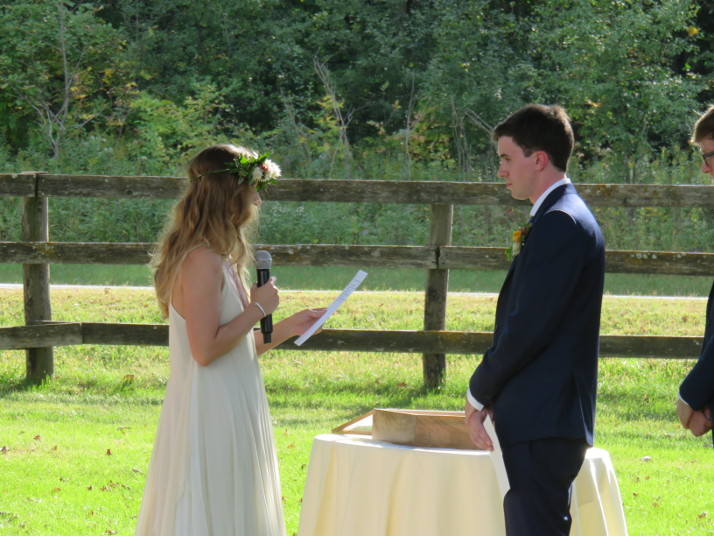Writing Your Own Vows
Writing your own vows for your wedding day is a wonderful way to make this most important moment of your ceremony even more memorable. It sounds like a simple thing to do – to share the happiness and love you feel, and to voice the promises you are making to each other.
But when you sit down to actually write the vows, it can quickly become an overwhelming experience. The ideas below will help you break the process down into workable pieces and create vows you’re proud to share.
- Talk to each other about length and tone. You’ll want vows that are similar in these ways, while still being unique to each of you. Eight to ten sentences is a good length, allowing you to share meaningful promises without boring your audience.
- Consider the content and flow of your vows. One approach is to break your vows into three sections: share a bit of your history, then move on to your promises, and close with your personal statement of love and commitment.
- Start early. You know why you’ve chosen to marry. You know what you love about each other. With a little thought, you can articulate the promises you want to make to each other. Completing your vows weeks before the ceremony removes some last minute stress for you and usually results in more articulate and thoughtful vows, too.
- Brainstorm to get started. Sitting down in front of a blank screen or paper can be intimidating. Create a list of concepts you might want to include, then go back and pick out the gems that are really important to you, and craft them into the thoughts and promises you want in your vows.
- Read the vows out loud. They will seem longer when voiced, so do this often as you write your vows. Listen to the word choices, timing and flow of ideas – things can sound different than they appear when printed. Remember your audience – you may choose to limit “inside jokes and stories” so they can stay engaged.
- Ask for advice or review as needed. If you have trouble getting started, can’t figure out how to get your vows to a reasonable length, or wonder if your humor is appropriate for the situation, consult your celebrant. We can help you find the right words to express yourself and provide editing support.
Remember, you’re likely to be somewhat emotional when sharing your vows, so using shorter, simpler sentences will make it easier to get through. Writing your own vows can be wonderful, but it’s not for everyone. Know your strengths and preferences – writing skills, presentation style, level of emotion, etc. Refer to my post from last week for other approaches to wedding vows, and you’re sure to find the one that’s right for you.

